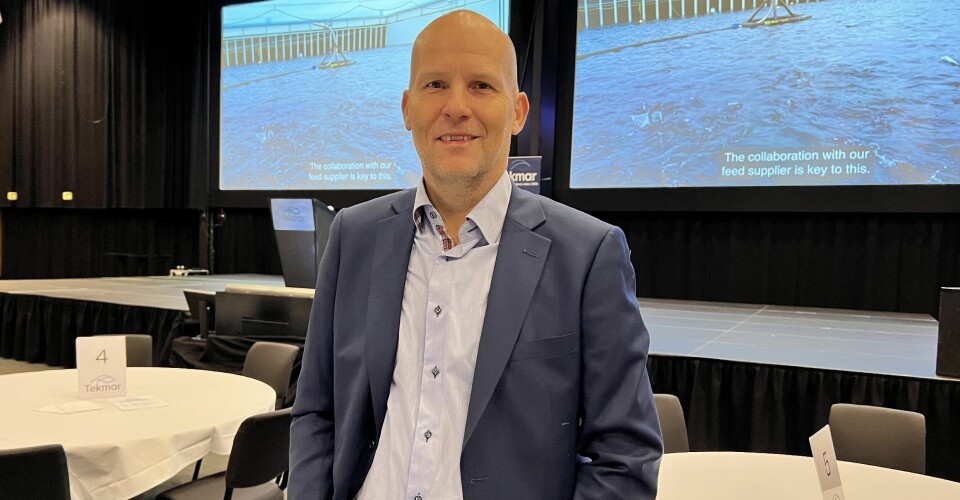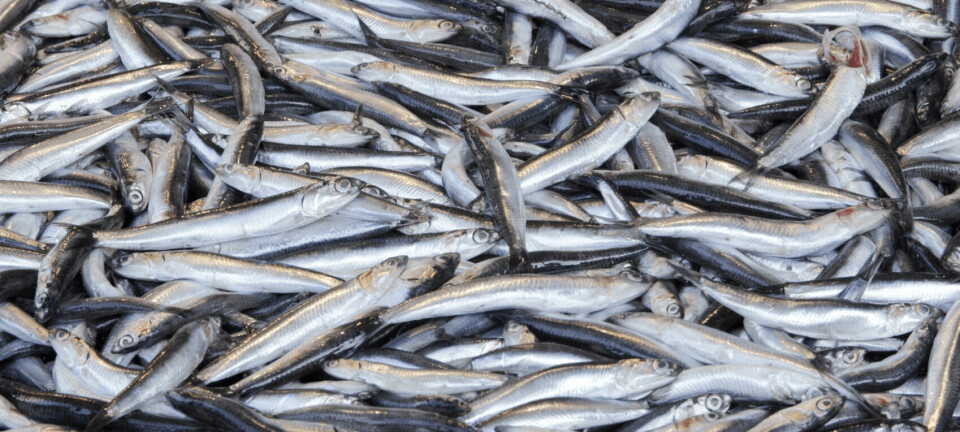
‘Mortality is the big problem, and job No.1 now’
Fish farmers must acknowledge 'the elephant in the room', says aquaculture conference organiser
Salmon farmers in Norway must have the courage to make tackling fish mortality their highest priority, the organiser of the country’s annual Tekmar salmon conference has said.
Leif Magne Sunde said mortality and fish welfare will be an important topic of the 21st Tekmar conference, which will be held in Trondheim on December 5-6.
“It is very important to do something concrete about all the mortality experienced by the aquaculture industry, which is the elephant in the room, and which you don’t really dare to talk about. You talk about it, and you don’t quite dare to address it, but it is mortality that is the big problem, and job No. 1 now,” said Sunde, who is senior business developer with the aquaculture department of research institution SINTEF Ocean.
He believes that a situation where biological issues mean that farmers must harvest and sell fish weighing three kilos is not sustainable.
“Not being able to produce a salmon of 4-5 kilos was seen as shameful in the past, and it cannot continue like this,” he told Fish Farming Expert’s Norwegian sister site, Kyst.no.
'It cannot continue'
“As the mortality rate for Norwegian farmed salmon is now, it cannot continue. Salmon production has no agreed targets. It requires courage to discuss whether one should put a number on mortality. No more investigations are needed: [we need] clear goals and ambitions, as well as work with concrete measures, based on courageous management to get the salmon out of the predicament it is in.”
Can the courage to demand 95% survival in the sea-based phase accelerate both the biological and technological transformation?
Leif Magne Sunde
He believes there must be a discussion about whether requirements for survival, growth rate, feed factor and proportion of superior fish should be included in Norway’s “traffic light system”, which regulates whether producers in the country’s 13 fish production areas can farm more or fewer fish. That system is currently based on the perceived threat of sea lice originating in farms might have to migrating wild salmon smolts, rather than on the welfare of fish in pens.
“Can the courage to demand 95% survival in the sea-based phase accelerate both the biological and technological transformation,” he asked.
Action, not investigation
Sunde believes the time has come for brave decisions, and the conference will address this subject.
His comments follow a report by Norway’s National Audit Office in June that accused the Ministry of Trade and Fisheries and its subordinate agencies of not taking sufficient measures to contribute to reducing the ongoing challenges of disease and poor fish welfare in the aquaculture industry.
“The National Audit Office has had the courage to speak out, and a new Minister of Fisheries and Oceans has now come in, so it will be exciting. One feels that the industry is in a bit of a vacuum in a way, and investments and innovation projects are hanging in the air due to the fact that the industry together has not set clear goals. At the top, there are several reports that do not have concrete content – ‘it needs to be investigated a little more, and then it needs to be investigated even a little more’ - and that’s how the years go by, and things don’t get better, but now something has to happen.”
New thinking
Sunde says Tekmar’s team have lined up relevant speakers, including Kristin Rypdal from the National Audit Office. She is assistant director and leader of the investigation into the authorities’ work on fish health and fish welfare, and will be one of the first to take the podium at Tekmar.
“We are also proud to have on the program third-generation farmer and general manager Sondre Eide from Eide Fjordbruk, who will tell a little about their courage, goals and wishes for future farming.”
In Eide Fjordbruk, there is a new generation of people running the company, and Sunde believes it is important to showcase the moves the company is making.
“They are not a large company, but they dare to make a number of other types of moves in order to develop and the industry in the right direction,” he said.
Lessons from chicken
Sunde added that Norwegian no-frills grocery retail chain Rema 1000 and the chicken industry have taken major steps to improve their reputation and will talk about this to salmon farmers at Tekmar.
“Chicken has been in trouble before, and at Tekmar 2018, Norsk Kylling AS presented measures they would take to ensure better animal welfare. Now they are coming back to tell us about the progress they have made,” said Sunde.
“They have invested a lot in technology and a lot in a biological transformation, by switching to Hubbard chicken and accepting that this breed must have a longer production time. The Ross chicken breed may be banned because it grows too quickly, and by changing the chicken breed, the production time has been increased from 30 to 46 days, but welfare has improved significantly.”
Slower salmon
The measures, he believes, have really boosted the momentum for the chicken sector, and this has also meant that it is moving forward in relation to welfare measures spelled out by animal welfare groups, including the RSPCA, in the European Chicken Commitment.
He believes the aquaculture industry can learn from the measures the chicken industry has taken, so that salmon isn’t left behind in international food trends.
“The aquaculture industry must not have tunnel vision, we must look at what other industries are doing and what they have achieved through positive measures and absorb all lessons learned. If necessary, we must accept that the smolt and the salmon must be given the time they need to develop, to improve welfare,” he said.




















































